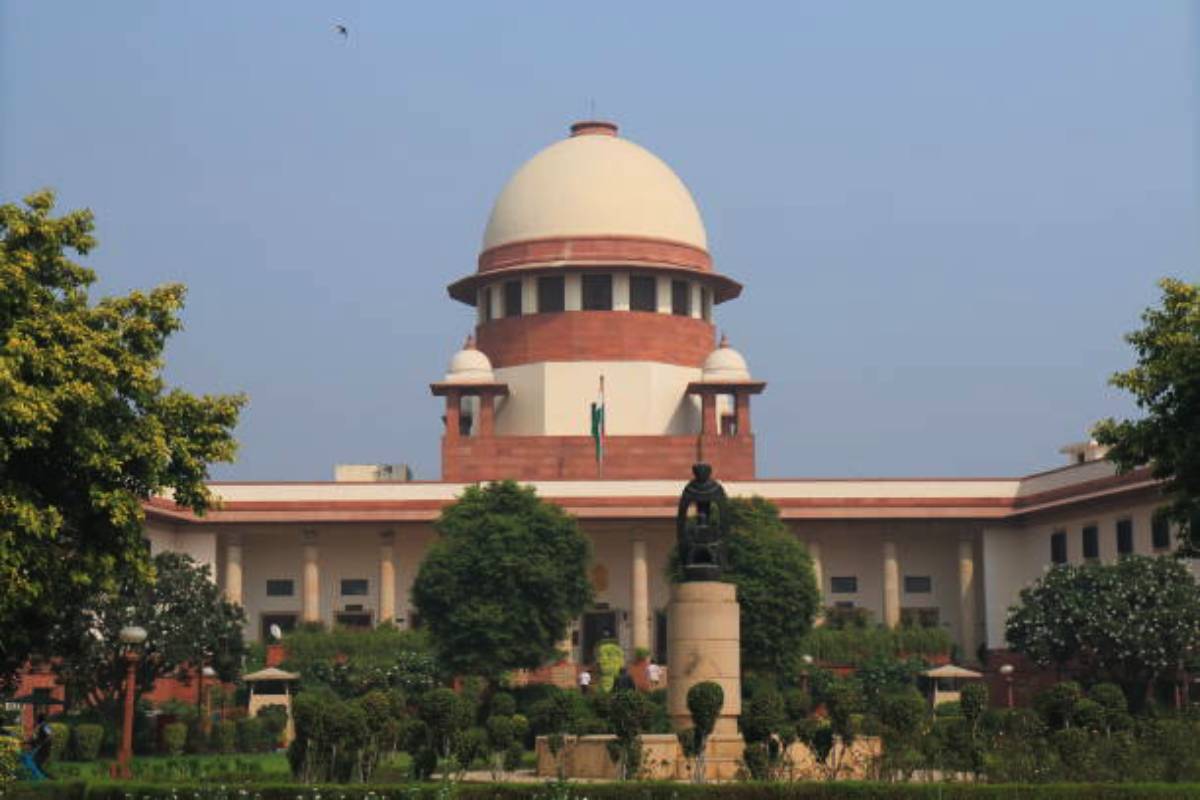The Supreme Court on Thursday upheld the Tamil Nadu, Karnataka, and Maharashtra laws allowing the bull-taming sport ‘Jallikattu’ , bull race of Kambala and bullock cart races respectively holding that the amendment to the law by the Tamil Nadu took care of the safety aspects in the conduct of Jallikattu and minimises the pain to bulls.
The judgment by a five-judge constitution bench headed by Justice K M Joseph mainly addressed the five questions referred to it by a two-judge bench on February 2, 2018 and the contentions raised by the petitioner challenging the Prevention of Cruelty to Animals (Tamil Nadu Amendment) Act, 2017.
Advertisement
Similarly, Karnataka and Maharashtra too had amended the Prevention of Cruelty to Animals Act, to pave the way for the restoration of Kambala and bullock cart races.
Having answered the five questions referred to the constitution bench on, by an earlier two-judge bench on February 2, 2018, the five-judge constitution bench while upholding the Tamil Nadu law, said that the same extends to the amended law of Karnataka and Maharashtra.
The constitution bench also comprising Justice Ajay Rastogi, Justice Aniruddha Bose, Justice Hrishikesh Roy and Justice C.T. Ravikumar said that the Prevention of Cruelty to Animals (Tamil Nadu Amendment) Act, 2017 by Tamil Nadu substantially minimises pain and suffering to bulls that form part of the bull taming sport of Jallikattu.
Having ruled in the favour of the Tamil Nadu amendment, the constitution bench extended the same reasoning for upholding the amendments brought by Karnataka and Maharashtra to allow Kambala and Bullock cart races.
The court noted that the bull taming sport of Jall8ikattu is prevalent in Tamil Nadu for the last few centuries.
Referring to one of the five questions framed by February 2, 2018 order ‘Can the amendment to the Tamil Nadu law be traceable to the State’s cultural heritage and thus entitled to the protection under Article 29(1) of the constitution’, the constitution bench today said that judiciary could not deliberate the matters relating the cultural heritage and tradition and the State legislature has already decided on it.
“Courts will not disturb such laws, not accept the argument that holding such events was not part of cultural heritage,” the ruling said. “The issue is debatable”, the bench said.
The five questions referred to the constitution bench were framed by a bench of the then Chief Justice Dipal Misra and Justice Rohinton Fali Nariman on February 2, 2018. Both then Chief Justice Misra and Justice Nariman have since retired.
Directing that the provisions of the amended law have to be enforced strictly, the constitution bench said that, having received the President’s assent the law cannot be interfered with.
The top court saddled the District Magistrate acting through competent authority to ensure DM and competent authorities shall be responsible for strict implementation of the amended law.
Apart from the cruelty that bulls are subjected to during the conduct of Jallikattu, while the Animal Welfare Board of India had sought to invoke Article 21 (Right to life) for the bulls, the People for Ethical Treatment of Animals in India had referred to Article 21 in the context of casualties and injuries suffered by the humans during the conduct of the events. PETA told the court that every year a number of participants in Jallikattu perish and their number is more than that of bulls.
The constitution bench today said that these laws do not violate Articles 14 (right to equality) and 21 (right to life).
Referring to 2014 judgment and the review of the same rejected in 2016, the court said that there was no sufficient material before the bench in 2014v to hold that Jallikattu was not a traditional sport of Tamil Nadu.
In 2018, the bench of then Chief Justice Dipak Misra and Justice Rohinton Fali Nariman had referred five questions for adjudication by a five-judge constitution bench that included whether amendment to Tamil Nadu law was referable to the subject relating to enactment of law for the prevention of cruelty under Entry 17 of concurrent list. ‘Does it further perpetuate cruelty to animals; and can it, therefore, be said to be a measure of prevention of cruelty to animals?
Other questions referred to the constitution bench were ‘Whether amendment is a colourable legislation which does not relate to any entry in the State list or the Concurrent list. Can the amendment to the Tamil Nadu law be traceable to the State’s cultural heritage and thus entitled to the protection under Article 29(1) of the constitution.
The clause (1) of the Article 29 that provides for the protection of interests of minorities says, “Any section of the citizens residing in the territory of India or any part thereof having a distinct language, script or culture of its own shall have the right to conserve the same.”
Another question referred was is the Tamil Nadu amendment Act ensure the survival and well-being of the native breed of bulls and is relatable to Article 48 of the constitution.
Article 48 of the constitution that takes care of the organisation of agriculture and animal husbandry says, “The State shall endeavour to organise agriculture and animal husbandry on modern and scientific lines and shall, in particular, take steps for preserving and improving the breeds, and prohibiting the slaughter, of cows and calves and other milch and draught cattle.”
Another question referred by the court in 2018 said, “Does the Tamil Nadu Amendment Act go contrary to Articles 51A(g) and 51A(h), and could it be said, therefore, to be unreasonable and violative of Articles 14 and 21 of the Constitution of India? “
The top court by its 2018 reference order asked the constitution bench to adjudicate whether the amended Tamil Nadu law was directly contrary to the top court’s 2014 judgment and whether the defects pointed out in the aforesaid judgments could be said to have been overcome by the State legislature he impugned Tamil Nadu Amendment Act?











